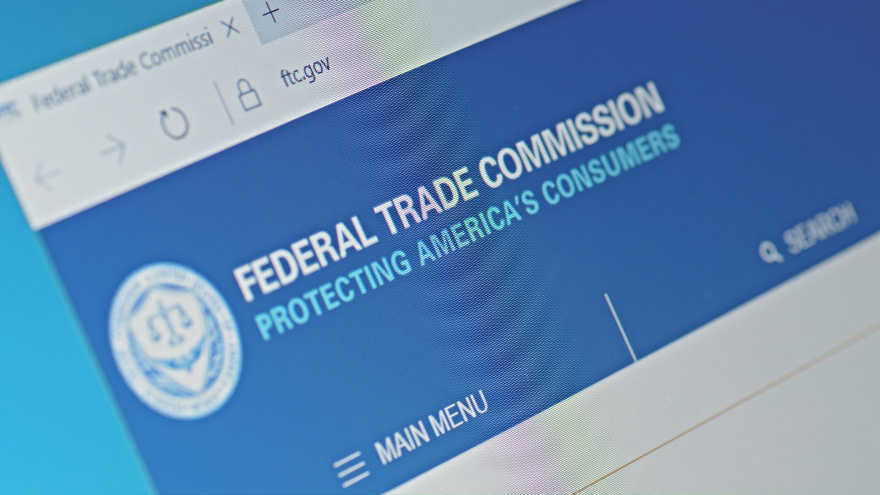FTC shares 7 recommendations to help small businesses

By subscribing, you agree to receive communications from Auto Remarketing and our partners in accordance with our Privacy Policy. We may share your information with select partners and sponsors who may contact you about their products and services. You may unsubscribe at any time.
WASHINGTON, D.C. –
Federal Trade Commission senior attorney Lesley Fair compiled a list of seven recommendations for small businesses — which could certainly include dealerships — in an effort to overcome the challenges created by the coronavirus pandemic.
“For small businesses, there’s never been a time when ‘business as usual’ has been so unusual,” Fair wrote on Wednesday in the FTC blog post that included the suggestions.
Here is Fair’s rundown:
1. Keep your lender in the loop
If you have existing financing and are struggling to make payments, Fair emphasized that small businesses should maintain open lines of communication.
“You may not be able to stroll down the street to chat with your banker, but many financial companies have extended their menu of online options,” she wrote. “Some have special portals and hotlines for small businesses and consumers who need to ask for deferrals or other relief.”
Subscribe to Auto Remarketing to stay informed and stay ahead.
By subscribing, you agree to receive communications from Auto Remarketing and our partners in accordance with our Privacy Policy. We may share your information with select partners and sponsors who may contact you about their products and services. You may unsubscribe at any time.
2. Check your contract for provisions that could apply
If dealer operators and principals haven’t already, Fair suggested they should read through their financing documents. Perhaps there could be provisions for requesting lower payments based on decreased sales
“Does the current situation — for example, a government order in your locale requiring businesses to suspend operations — allow you to stop making payments at least temporarily? What steps do you need to take? Your lender or provider is dealing with many businesses in the same straits,” Fair wrote. “Contact the company to talk it through.”
3. Seeking new small business financing? Keep a cool head.
Fair acknowledged that cash-strapped businesses like dealerships might be tempted to take financial actions they might not normally do.
“Now more than ever, it’s wise to think through your options before committing to a financial transaction — a traditional loan, an online arrangement, or any other product,” Fair stressed.
“Comparison shop to determine how much it will cost and whether you can afford repayments,” she continued. “If you sense a sales person is rushing you through the process, that alone should be sign to slow things down.”
4. Understand the details of the deal.
Just like personnel in the dealership finance office are supposed to do for vehicle buyers, Fair emphasized that small-business owners need to understand the intricacies of a lending arrangement by asking the provider for clarity. She pointed out that some business owners are looking for financing through non-traditional sources, including online options.
“But many of those transactions are different from what you may be used to,” Fair wrote. “Scrutinize the offer before signing on the digital dotted line.
“What are the consequences if you can’t make timely payments? Do you have to offer a personal guarantee? Does the lender insist on a confession of judgment? If there is anything you don’t understand about the offer, call or email the lender or provider,” she continued.
“Don’t commit until you’re satisfied with the answers, but also don’t rely on oral representations. Get the details in writing and closely review the proposed terms or contracts,” Fair added.
5. Consider what resources may be available from government agencies like the Small Business Administration
Industry organizations like the National Automobile Dealers Association and National Independent Automobile Dealers Association have been urging their members to seek assistance through the resources provided by the CARES Act. Fair reiterated the same advice.
For example, the SBA’s Coronavirus Relief Options page offers information about the Paycheck Protection Program, Economic Injury Disaster Loan Emergency Advances, SBA Express Bridge Loans, and SBA Debt Relief.
6. Protect your business from COVID-19 fraud
The FTC said it has identified at least seven coronavirus-related scams targeting small businesses.
“And we’re hearing reports of more,” Fair wrote while noting that some businesses are getting unsolicited calls or email or have seen websites claiming to offer an “inside track” to expedite financial relief from the SBA or other agencies.
“Some brazen scammers are even impersonating government officials,” she added. “If anyone contacts you out of the blue and says they need upfront money or personal information so you can get a government business loan or a personal payment, it’s a scam.
7. If you spot deceptive or unfair practices, report them to the FTC
Finally, Fair instructed small businesses to alert the regulator of potentially suspicious activity.
The FTC created a special online portal here to report experiences with questionable conduct related to small business financing.


